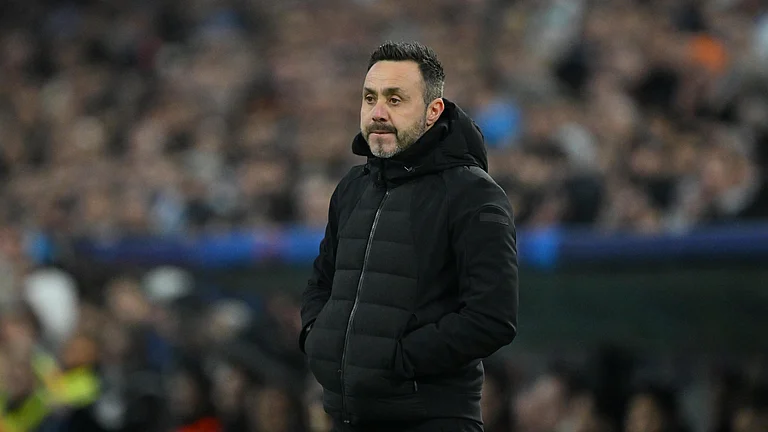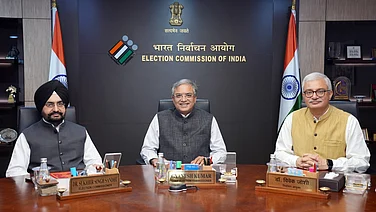In an interview to Anuradha Raman, the father of India’s Green Revolution, M.S. Swaminathan, categorically says India can’t think of exporting non-basmati rice when 40 per cent of children below three are malnourished and 26 per cent go hungry. Excerpts:
What do you make of the Rs 2,500 crore non-basmati rice export scam exposed by Outlook? Do you think the export was justified?
The export of rice and other foodgrains can take place only after the country secures food for everyone. What this means is not just securing food for today but the future also. It becomes the responsibility of the state to make foodgrains available in the public distribution system, the Integrated Child Development Scheme, the mid-day meal scheme and other welfare schemes to tackle hunger and poverty. And this can happen only after food cover is provided to everyone, and that includes cattle, sheep and poultry. After actually meeting the food needs of everyone, the government will find there’s little surplus to export.
Should India stop exporting rice?
India can export its high-valued basmati rice and import non-basmati rice as other countries like China have done in the past. I believe no time is a correct time to export when millions are malnourished. Exports can’t be at the cost of internal food security. Foodgrains can’t be exported without making food available for people back home. After all, charity begins at home.
Do you agree when the government says that the export of 10 lakh MT did not affect the PDS as it was bought from private traders, not from FCI godowns?
The government’s defence that the rice was brought from traders is based on faulty reasoning because it is the state’s responsibility to be the first to buy foodgrains from the farmer to ensure its availability in PDS. But it is the private traders who move in first and the farmer sells his harvest to anyone who offers the best price for the harvest. The government has to control the traders from getting into what is clearly an issue of food security.
Do you think private traders should be allowed to call the shots as they did in this case, making a killing out of exporting non-basmati rice?
Countries like the US, Canada and Thailand prohibit the export of foodgrains unless domestic needs are fulfilled. Also, these countries impose a lot of restrictions on private traders. We must have rice and wheat boards with clearly-defined restrictions on what to export, and private traders must not influence the export of foodgrains. Just as in the recent court order that gas is a national asset that cannot be left in the hands of a few to export and make money, foodgrains too cannot be left to traders to export.
The government claims it has adequate buffer stocks to justify periodic exports...
The surplus is not a realistic estimate. A poor man in rural India is required to consume 2,100 calories every day but can’t because his purchasing power is far too low. Hence he consumes less than what’s required. One-third of our population neither has the purchasing power nor the access to foodgrains—that’s why more than 40 per cent of children are malnourished here. In the Global Hunger Index, India is below Sudan, Nigeria and Cameroon, which is shameful.
What do you make of the government’s claim that as projections for 2008-09 indicated a bumper crop, it was okay to export non-basmati rice?
We have a population of over a billion. The management of food budget is a long-term policy and involves long-term planning. And exports done on the basis of one-year yields/ harvest will deplete our food stocks. There could be two exceptionally good years with adequate rains, followed by no rains in the third year. I am worried about the delay in rains this year. The food budget of the country should factor in such contingencies like delay in monsoon or inadequate rains and should be guided by one simple fact: minimise the adverse impact of bad monsoon by maximising the consequences of a good one. Planning for unfavourable weather should be integral to food security as most of our agriculture is rain-fed.
Moreover, the government would do well to remember the decision taken by the then prime minister Indira Gandhi in 1973, when our food stocks had gone up to 17 million MT, and there was pressure from the Planning Commission and the finance ministry to export. She said with 600 million people to feed, what would happen if there was drought?
What must the government do to ensure food security?
First is to ensure food availability which depends on production and imports. The second is access to food through PDS. The third is, food absorption which depends on several factors like safe drinking water, hygiene, primary healthcare and education.


























